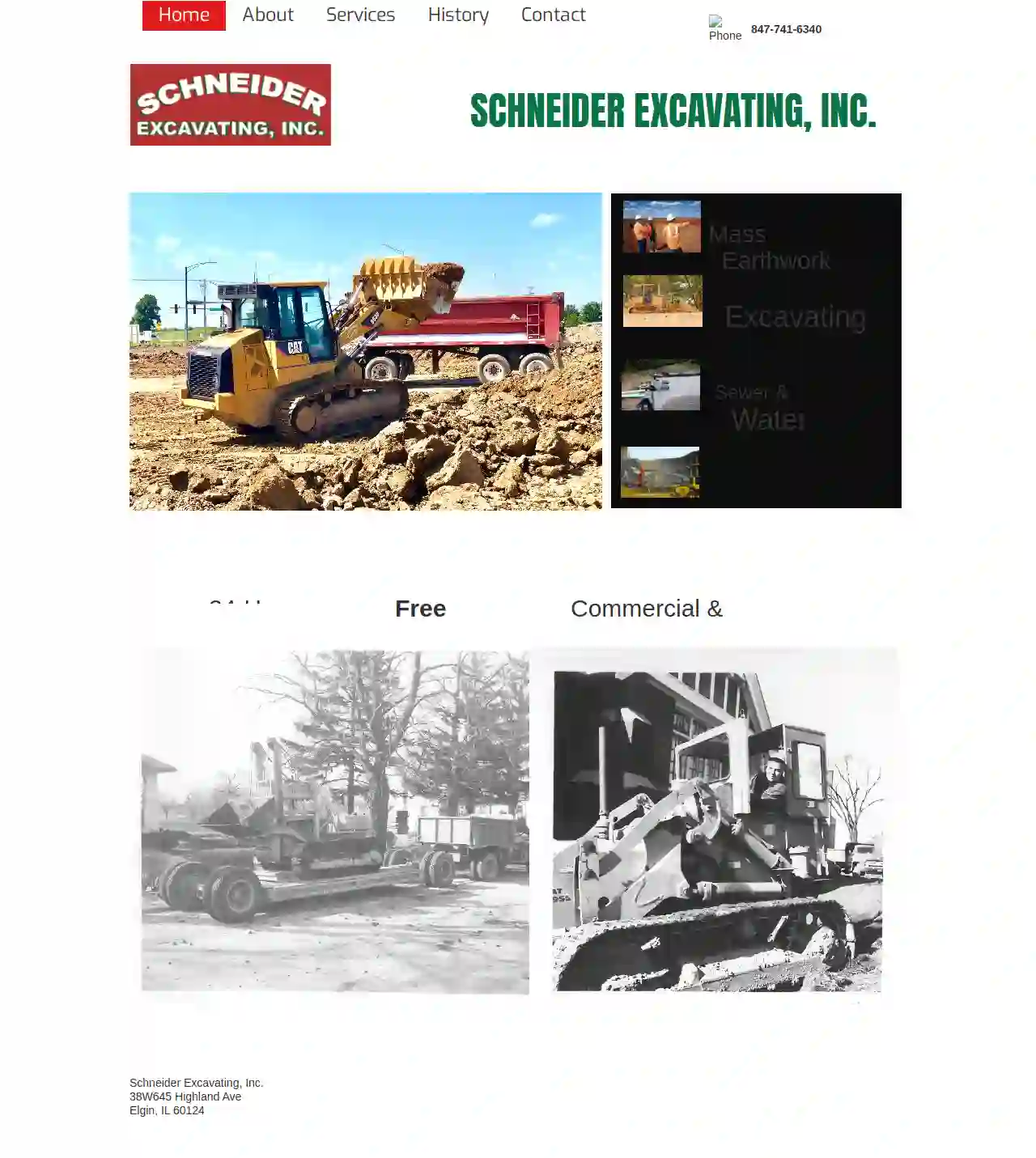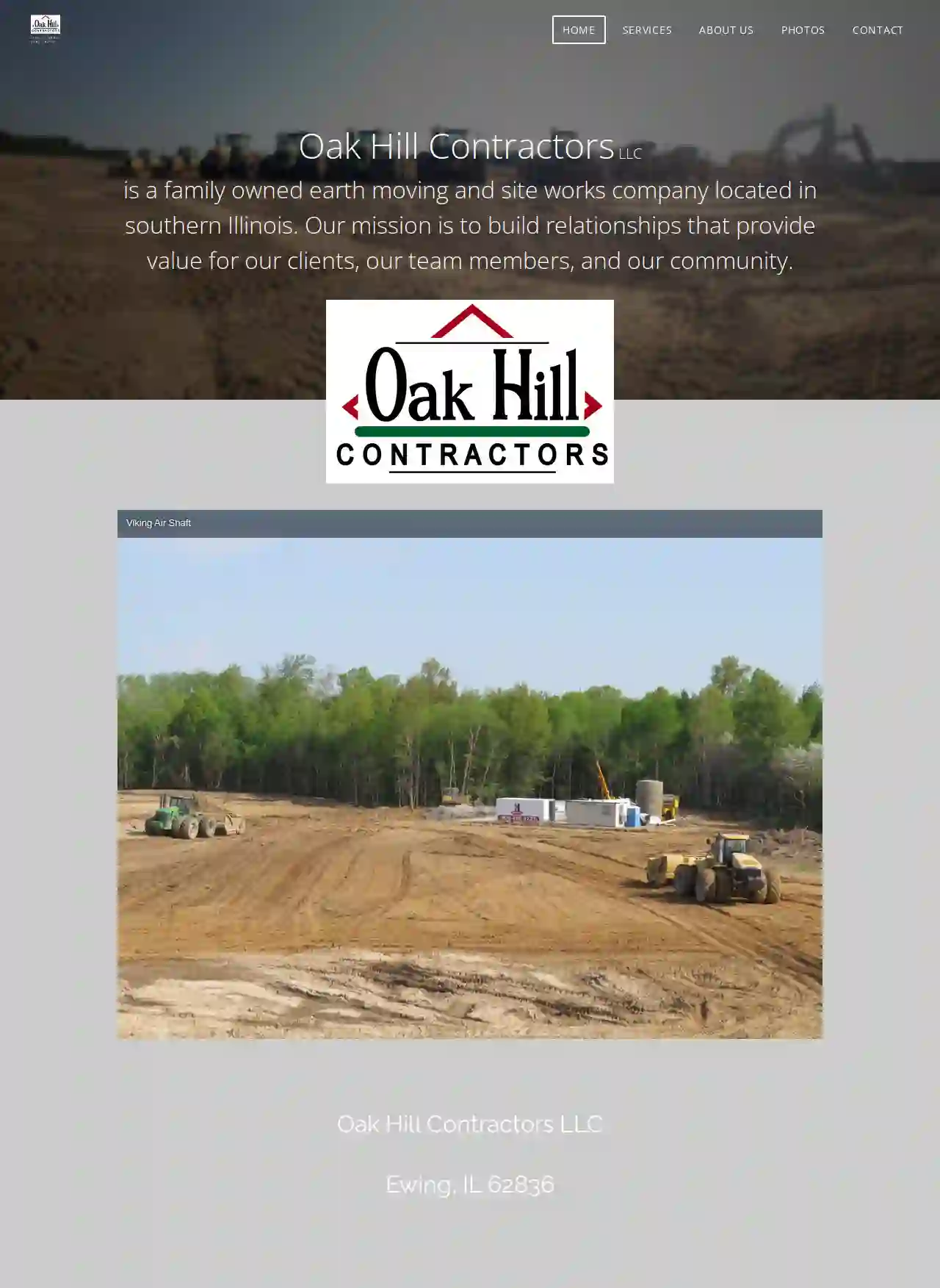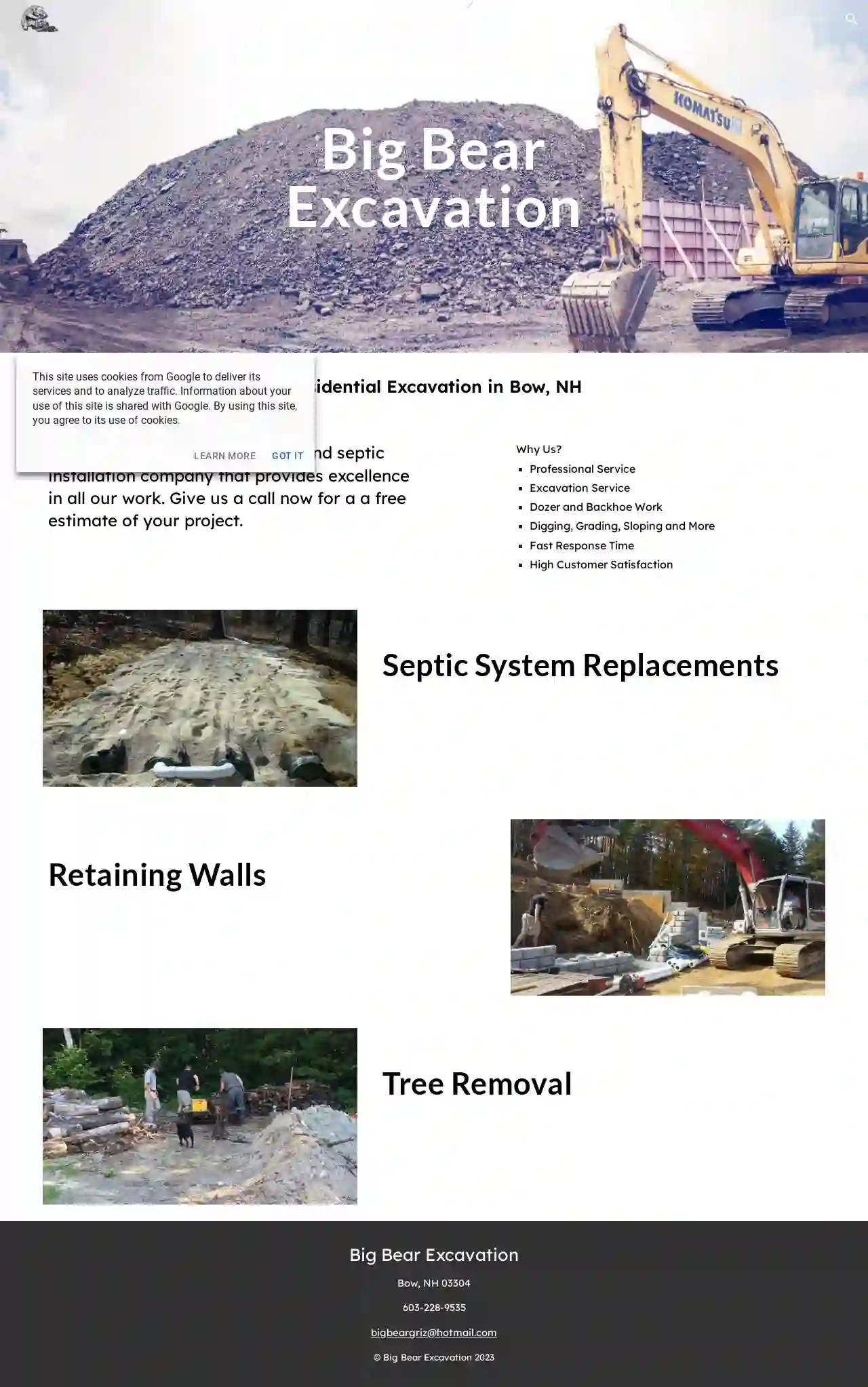Demolition Contractors Rosewood Heights
Top 10 Demolition Contractor in Rosewood Heights
Get 3 FREE Local Demolition Contractors quotes for your project today! Compare profiles, reviews, accreditations, portfolio, etc... and choose the best offer.

Schneider Excavating Inc.
52 reviews38W645 Highland Ave, Elgin, 60124, USAbout Schneider Excavating, Inc. Established in 1932, Schneider Excavating, Inc. strives to be the go-to company for all your excavation needs. We specialize in Mass Earthwork, Excavating, Sewer & Water, and Demolition, offering a level of expertise that sets us apart from other contractors. With over 85 years of experience, we've become experts in excavating for virtually any project. Beyond our contracting certifications, we adhere to strict industry guidelines, incorporating standards set by the EPA and OSHA. This commitment ensures every project detail is addressed, resulting in exceptional work. We are dedicated to doing right by those who place their trust in us. Proudly serving Elgin & the Fox Valley since 1932, Schneider Excavating, Inc. is here to assist you, whether you have a 50-acre site requiring hundreds of thousands of cubic yards of earth movement or a small municipal site with minor infrastructure additions. Many of our clients are Design/Build contractors with projects ranging from 30,000 square feet to a million square feet. We work closely from budget to build-out, ensuring we stay on schedule and within budget. We have collaborated with a wide range of Contractors, Project Managers, Engineering Firms, Architects, and Private Companies in and around the Elgin area. No matter the size, scope, or uniqueness of your project, we can provide references for your specific type of work. Feel free to contact us anytime!
- Services
- Why Us?
- Our Team
- Testimonials
- Gallery
Get Quote
J.G Gagnon & Son's Excavation L.L.C
44 reviewsEpping, New Hampshire, United States, USJ.G. GAGNON & SON’S EXCAVATION L.L.C. We take pride in all the jobs we do. With 30 years of experience and pristine work ethics, we give every customer and job 200%. We have a passion, not only for the excavation work itself but, for our customers and their satisfaction! We treat and tackle every job as if it was our own. We take extreme pride in our finished product, always leaving our customers completely satisfied. We’re a small business located in Southern NH and offer services in -
- Services
- Why Us?
- Gallery
Get Quote- Ry
Ryan Excavating
51 reviewsChicago, USFacebook is a social networking service and website launched in February 2004, owned by Meta Platforms. It is the largest social network in the world, with over 2.91 billion monthly active users as of the first quarter of 2023. Users can create a personal profile, add other users as friends, and exchange messages, photos, and videos. Facebook is also used by businesses to connect with customers and promote their products and services. The site has been criticized for its role in the spread of misinformation, its impact on mental health, and its privacy practices.
- Services
- Why Us?
- Gallery
Get Quote 
K B Earthworks
54 reviewsGilmanton, USKB Earthworks: Your Trusted Partner for Excavation, Trucking, and Site Clearing in Central New Hampshire KB Earthworks is a locally owned and operated business serving the Lakes Region in Central New Hampshire. We're passionate about providing top-notch excavation, trucking, and site clearing services to both residential and commercial clients. With a wide range of heavy equipment and over 30 years of combined experience, we're equipped to handle projects of all sizes, from small-scale landscaping to large-scale land development. Our team is dedicated to delivering exceptional service, exceeding expectations, and ensuring customer satisfaction. We pride ourselves on our commitment to safety, quality, and efficiency. We work closely with our clients to understand their needs and provide customized solutions that meet their specific requirements. Whether you're looking to create a new driveway, clear land for a new construction project, or install a septic system, KB Earthworks is your one-stop shop for all your sitework needs. We're committed to providing our clients with the highest quality workmanship and exceptional customer service. Contact us today for a free consultation and estimate.
- Services
- Why Us?
- Testimonials
- Gallery
Get Quote
Huntoon Excavation LLC
3.73 reviews100 Huntoon Rd, Ballston Spa, 12180, USHuntoon Excavation: Your Trusted Partner for Excavation Services Huntoon Excavation is a family-owned and operated business with over 20 years of experience in the excavation industry. We are committed to providing our clients with high-quality, reliable, and affordable excavation services. We have a team of experienced and skilled operators who are dedicated to getting the job done right, on time, and within budget. We understand that excavation projects can be complex and require a high level of expertise. That's why we take a personalized approach to every project, working closely with our clients to ensure that their needs are met. We are also committed to safety and environmental responsibility, and we always strive to minimize our impact on the surrounding environment. Whether you need site preparation, foundation excavation, utility installation, or any other excavation services, Huntoon Excavation is the company to call. We are confident that you will be satisfied with our work.
- Services
- Why Us?
Get Quote
Oak Hill Contractors LLC
53 reviews20245 Ewing Road, Ewing, 62836, USAbout Oak Hill Contractors LLC Oak Hill Contractors LLC is a family-owned earth moving and site works company based in southern Illinois. We are dedicated to building strong relationships with our clients, team members, and the community, ensuring value for everyone involved. Our commitment to quality work and a wide range of equipment allows us to handle projects of all sizes. We utilize GPS-equipped machines for efficient and accurate grading work, ensuring precision and timely completion. We are proud to be Prequalified by IDOT and have MSHA-trained personnel. We are also fully insured, providing peace of mind to our clients. Take a look at one of our recent projects: Sugar Camp Refuse Expansion.
- Services
- Why Us?
- Gallery
Get Quote
McHenry Excavating, Inc
4.934 reviews1903 State Rte 31, Suite A, McHenry, 60050, USWelcome to McHenry Excavating, Inc. Commercial & Residential Demolition Pool & Concrete Removal Excavation Sewer & Water Grading Hauling & Removal Helical Piles Under-Pinning Chicagoland’s 24/7 Demolition and Excavation Experts As the Chicagoland area’s demolition and excavation experts since 2006, McHenry Excavating, Inc. is a family-owned and -operated company specializing in residential, commercial and industrial services. Serving McHenry, Lake, DuPage and Cook Counties alike, we’re also highly skilled in grading, dredging, hauling, trenching and concrete removal services. No job is too challenging for our experienced crew. Whether you have a short project timeline or a small budget to work with, give us a call to see what we can do for you. ABOUT US If We Can’t Do It, It Can’t Be Done We take great pride in providing outstanding customer service and support and have the expertise, professionalism, and experience necessary to complete every job safely and efficiently. Because we understand that no two projects are ever the same, we make it our mission to identify your every need to precisely execute your projects to your complete satisfaction. From your project’s conception to its completion, we’re there for you every step of the way! No matter how large or small, you can rest assured that you’re always in good hands when you choose McHenry Excavating, Inc. to handle your project. CONTACT US Why Choose McHenry Excavating, Inc.? Certified, Licensed & Bonded 24/7 Emergency Response Free In-Home/On-Site Estimates 100% Customer Satisfaction Reliable & Affordable Pricing Utmost Commitment to Safety No Project’s Too Large or Too Small Experienced and Trained Staff
- Services
- Why Us?
- Testimonials
- Gallery
Get Quote
F.L. Merrill Construction, Inc.
51 reviews35 Veterans Drive, Loudon, 03275, USProudly Serving New Hampshire Since 1990. Located In Loudon, NH Family Owned & Operated NH Construction Company Get A Quote Municipal Construction We specialize in road construction for small local subdivisions. Our expertise includes building, constructing, & repairing roadways. Commercial Construction Our New Hampshire commercial construction experience includes land clearing, site work, utility installation, and more. Residential Construction Whether you need help with excavation for a new septic system or any other excavation need, our team has 25+ years of experience. Who We Are A Dedicated Team Of Construction Experts F.L. Merrill Construction's success is built on a foundation of hard work and dedication, values that are shared by everyone from upper management to construction crew members. Frank and Sue Merrill realized their ability to provide customers with a superior service comes down to their team who are consider to be an extension of their family. By investing in its people, Merrill Construction has established itself as a NH construction industry leader for over three decades. Tell us about your project! Land Clearing Site Work Utility Installation Road Construction Bridge Construction Footing Foundations Residential Excavation Materials Supply Trucking & Dumping Get A Free Quote Today! Get A Quote
- Services
- Why Us?
- Testimonials
- Gallery
Get Quote
Big Bear Excavation
51 reviewsBow, 03304, USBig Bear Excavation We are a residential excavation and septic installation company that provides excellence in all our work. Give us a call now for a free estimate of your project. Why Us? Professional Service Excavation Service Dozer and Backhoe Work Digging, Grading, Sloping and More Fast Response Time High Customer Satisfaction Septic System Replacements Retaining Walls Tree Removal
- Services
- Why Us?
- Gallery
Get Quote
Wilder Excavating LLC
52 reviews126 Kennedy Brook Drive, Stoddard, 03464-4514, USWelcome to Wilder Excavating! Located in Southwestern NH, Wilder Excavating is a locally family-owned business serving the Monadnock Region and surrounding areas. We work with both residential and commercial customers. At Wilder Excavating, we take great pride in our hands-on experience, expertise, quality, and customer service. It is our mission to provide excellent workmanship and complete customer satisfaction from the start to finish of your project. We understand every customer has different needs. We take time to meet with you, evaluate your project and give you options based on your needs and budget. We take great care to work and communicate with every customer in a professional manner. Our reputation is based on service, safety, and quality, regardless of how large or small the job. Ben from Wilder excavating is nothing short of a solid human being. I have used them multiple times for material sourcing, material delivery, heavy equipment trucking, and advice so I can plan for future projects. Never once was there an issue with any of our interactions regardless of the amount of money changing hands. I recommend them to anyone I know in the region that needs their many services. - Eddie FREE ESTIMATES Need a new lawn, driveway, culvert, septic system … or something needing an excavator… and have no idea what to budget? We are happy to come to you to evaluate the job, and give you pricing… with NO OBLIGATION on your part to hire us for the job. Depending on your needs, we will often give additional options… which you may not have thought about to make the end project better and still be within or under a price range that will fit your budget. We stand behind our work and our pricing. Financing options are available for qualified individuals, if needed. Call for a FREE ESTIMATE (603) 313-5591
- Services
- Why Us?
- Testimonials
- Gallery
Get Quote
Over 22,076+ Excavation Businesses registered
Our excavation companies operate in Rosewood Heights and surrounding areas!
ExcavationHQ has curated and vetted the Best Excavation Contractors in Rosewood Heights. Find a top & reliable pro today.
Frequently Asked Questions About Demolition Contractors
- Project Assessment: The demolition contractor evaluates the structure, site conditions, and project requirements.
- Permitting: Obtain necessary demolition permits from local authorities.
- Site Preparation: Secure the site, disconnect utilities, and remove any valuable or reusable items.
- Hazardous Material Abatement: Professionally remove asbestos, lead paint, or other hazardous materials if present.
- Demolition: Execute the chosen demolition method, bringing down the structure safely and efficiently.
- Debris Removal and Site Cleanup: Sort, process, and dispose of demolition debris responsibly. Clean up the site to prepare it for future use.
- Recycling: Concrete, brick, metal, and wood can be recycled and reused in other construction projects, reducing waste sent to landfills.
- Landfill Disposal: Non-recyclable materials are disposed of in designated landfills according to local regulations.
- Donation: Some materials, such as fixtures or appliances, may be suitable for donation to charitable organizations.
- Safety: Experienced contractors have the knowledge, skills, and safety training to execute demolitions safely, minimizing risks to workers and surrounding areas.
- Efficiency: Contractors have the specialized equipment and expertise to complete demolitions efficiently, saving time and reducing project costs.
- Compliance: Reputable contractors are familiar with local regulations and permitting requirements, ensuring compliance and avoiding legal issues.
- Waste Management: Contractors have waste management plans to handle debris responsibly, including recycling and proper disposal.
- Liability Protection: Insured contractors protect you from financial responsibility for accidents or damages during the demolition process.
What are the steps involved in a typical demolition process?
What is the difference between demolition and deconstruction?
Demolition: Typically involves bringing down a structure quickly and efficiently, often using heavy machinery and potentially explosives. The primary goal is to clear the site.
Deconstruction: Focuses on carefully dismantling a building piece by piece to salvage reusable materials. It prioritizes minimizing waste and environmental impact, often involving manual labor and specialized tools.
The choice between demolition and deconstruction depends on the project's objectives, budget, and environmental considerations.
What happens to the debris after demolition?
What are the benefits of hiring a professional demolition contractor?
What are the steps involved in a typical demolition process?
- Project Assessment: The demolition contractor evaluates the structure, site conditions, and project requirements.
- Permitting: Obtain necessary demolition permits from local authorities.
- Site Preparation: Secure the site, disconnect utilities, and remove any valuable or reusable items.
- Hazardous Material Abatement: Professionally remove asbestos, lead paint, or other hazardous materials if present.
- Demolition: Execute the chosen demolition method, bringing down the structure safely and efficiently.
- Debris Removal and Site Cleanup: Sort, process, and dispose of demolition debris responsibly. Clean up the site to prepare it for future use.
What is the difference between demolition and deconstruction?
Demolition: Typically involves bringing down a structure quickly and efficiently, often using heavy machinery and potentially explosives. The primary goal is to clear the site.
Deconstruction: Focuses on carefully dismantling a building piece by piece to salvage reusable materials. It prioritizes minimizing waste and environmental impact, often involving manual labor and specialized tools.
The choice between demolition and deconstruction depends on the project's objectives, budget, and environmental considerations.
What happens to the debris after demolition?
- Recycling: Concrete, brick, metal, and wood can be recycled and reused in other construction projects, reducing waste sent to landfills.
- Landfill Disposal: Non-recyclable materials are disposed of in designated landfills according to local regulations.
- Donation: Some materials, such as fixtures or appliances, may be suitable for donation to charitable organizations.
What are the benefits of hiring a professional demolition contractor?
- Safety: Experienced contractors have the knowledge, skills, and safety training to execute demolitions safely, minimizing risks to workers and surrounding areas.
- Efficiency: Contractors have the specialized equipment and expertise to complete demolitions efficiently, saving time and reducing project costs.
- Compliance: Reputable contractors are familiar with local regulations and permitting requirements, ensuring compliance and avoiding legal issues.
- Waste Management: Contractors have waste management plans to handle debris responsibly, including recycling and proper disposal.
- Liability Protection: Insured contractors protect you from financial responsibility for accidents or damages during the demolition process.